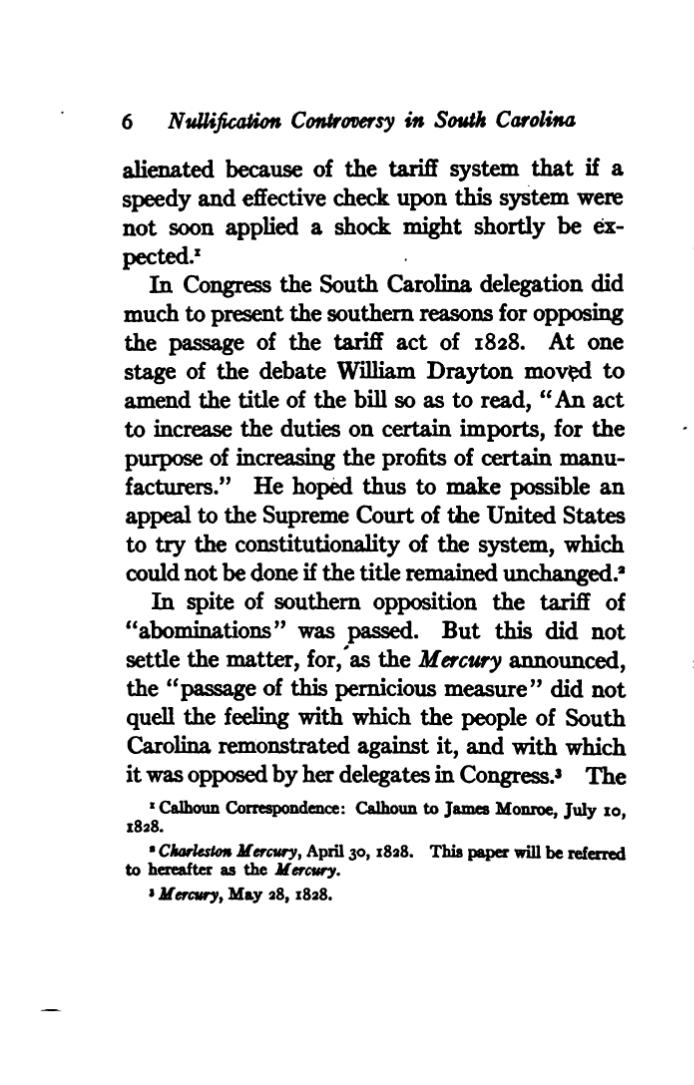alienated because of the tariff system that if a speedy and effective check upon this system were not soon applied a shock might shortly be expected.[1]
In Congress the South Carolina delegation did much to present the southern reasons for opposing the passage of the tariff act of 1828. At one stage of the debate William Drayton moved to amend the title of the bill so as to read, "An act to increase the duties on certain imports, for the purpose of increasing the profits of certain manufacturers." He hoped this to make possible an appeal to the Supreme Court of the United States to try the constitutionality of the system, which could not be done if the title remained unchanged.[2]
In spite of southern opposition the tariff of "abominations" was passed. But this did not settle the matter, for, as the Mercury announced, the "passage of this pernicious measure" did not quell the feeling with which the people of South Carolina remonstrated against it, and with which it was opposed by her delegates in Congress.[3] The
